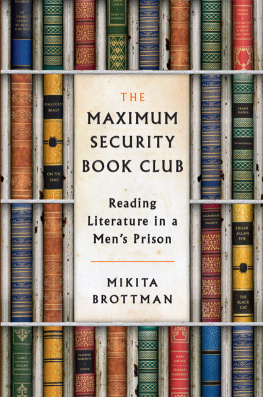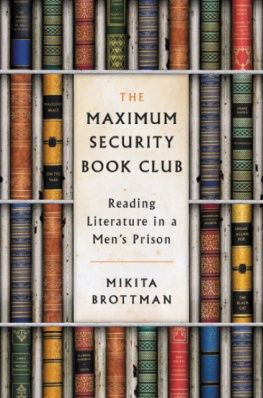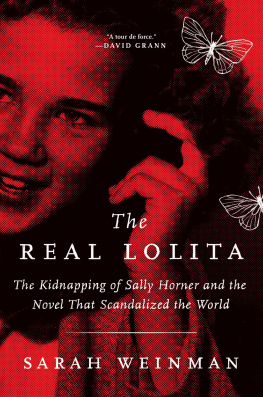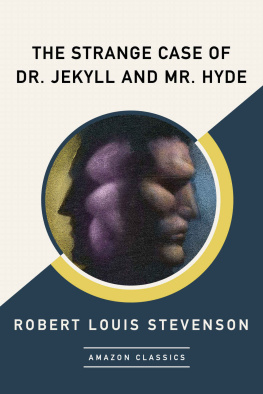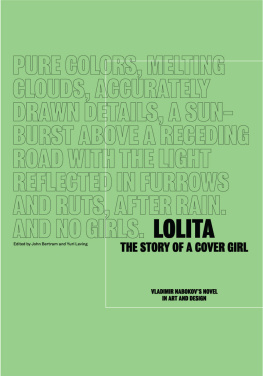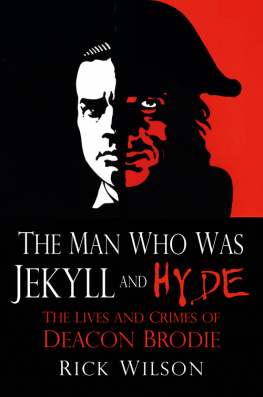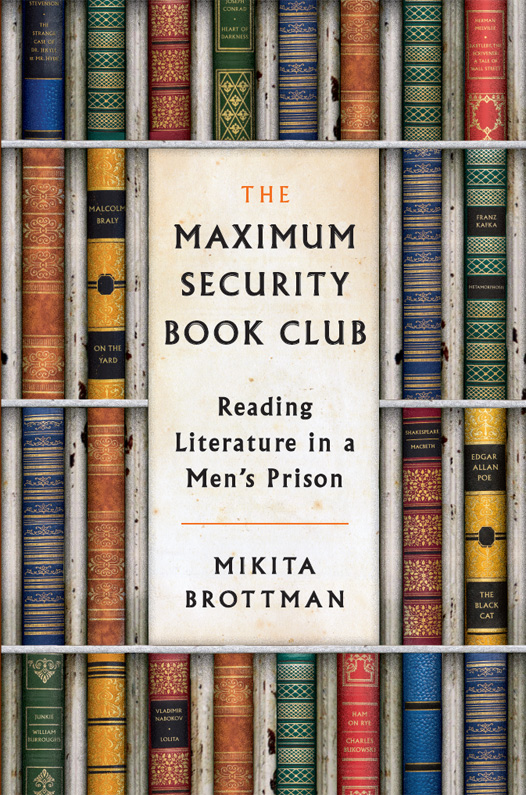It was written I should be loyal to the nightmare of my choice.
For the last three years, Ive been running a book club at a mens prison. I started volunteering at the prison as a sabbatical project, but its become a long-term commitment. My fascination with this place and the men who inhabit it isnt a new impulse; Ive long been preoccupied with the lives of people generally considered unworthy of sympathy, especially those whove committed crimes with irreversible moral implications, like murder. Such people, more so even than the rest of us, are unable to escape the past.
Right or wrong, its to the past that we look when seeking explanations for human behavior, digging through family histories to find motives for present tendencies. So here is mine, in a nutshell. I was born in Sheffield, an industrial city in the north of England, to rebellious young parents with little respect for the law. It was the middle sixties. My father had a Beatle haircut and wore John Lennon glasses; my mother had three children by the time she was twenty-two. On the ceiling above their bed was a purple sticker that said, Make Love Not War. They believed that if you didnt embrace the values of mainstream society, the system was stacked against you, and you had to fight it any way you could. They seemed to have no sense of belonging to a broader world and none of the personal authority or autonomy this belonging normally brings. Instead, they saw themselves as victims of the state.
My parents began their adult lives as schoolteachers, though neither, in the end, was cut out for the role. My father stuck with it for more than twenty years, in the meantime fighting the system through minor scams (dodging the entrance fees to parks and campgrounds by lifting us over the back fence, or hiding us in the trunk of the car) that were so much a part of our daily life I never questioned them. My mothers style of battle was different. She became radicalized and enlightened, got divorced, stopped cooking our meals, gave up her teaching job, and joined the local Communist Party. She decided my brothers and I no longer needed adult supervision. My brothers stopped going to school and started getting into trouble. They knew they could get away with it; our mother regarded social workers, anxious parents, and the police as squares who were against freedom and hung up about sexselfish, narrow-minded types who only cared about the values of the Man (as opposed to loving, freethinking, broad-minded people like us).
By the time I was sixteen, my two brothers had both moved out and gone on the dole. In Sheffield in the 1980s, it was perfectly normal to live on state benefits; everyone did it. I hardly knew anyone with a job. My brothers lived with friends who played in bands, smoked pot, and made their homes in squats or state-subsidized housing. My younger brother became addicted to heroin and spent a brief time in prison on pretrial detention for drug possession charges.
Once both brothers had left home, my mother rented out their bedrooms to hard-luck cases she met in the pub: feckless single mothers, addicts, and ex-cons who shared our bathroom, kitchen, and television room. When she took in a pedophile on the run from the law, I stopped going downstairs at all and retreated to my attic bedroom, where it was so cold I could see my breath. (Whenever I complained, I was asked, Why dont you put on another sweater?) I closed the curtains, huddled by the electric radiator with my cat, and escaped into booksa habit fostered not by my teachers, I should add, but in spite of them: the government body that eventually closed down my school described it as one of the worst in Britain. (Poverty invades the school like water flooding a ship, concluded one investigator.)
All that time spent reading paid off: I won a scholarship to study literature at Oxford. Everyone let me know Id sold out, betrayed my roots. My father warned Id soon become posh and pretentious. My mother said Oxford was a bastion of elitism and Id be joining the system. But bad blood runs deep. I didnt realize it at the time, but Id already absorbed my familys underdog, outlaw mentality.
As a result, I dont think of people in prison as bad people whove broken the rules of the good people on the outside. Rather, I often think how easily Ihow anyonecould end up there. I was lucky enough not to be born to abusive, drug-addicted parents; lucky to be born with a good mind, to be given education and health care and decent food. Of course, not all those people who end up in prison are raised in poverty. Even the most stable and prosperous life can be derailed by an impulsive move with tragic consequences (shooting an intruder, punching a girlfriend, knocking over a pedestrian). Plus, many people in prison claim they are innocent. Why should I disbelieve them? What separates me from these unfortunate souls except my own good fortune? My good fortune so far, I should say; I could still end up behind bars.
Let me add, in case you get the wrong impression of me, that Im a quiet, private, law-abiding type with no criminal record. Ive worked hard to build myself the kind of life I find comfortable, but Ive also been incredibly lucky. Ive had all kinds of opportunities that havent come to others, including a world-class, state-financed graduate-level education. To put it simply, I cant help but feel a powerful allegiance to those whose lives havent worked out so well, and its partly this feeling that drives me to volunteer at the prison, where I work with the same kinds of people I used to hide from when my mother took them in. Sometimes I worry the compulsion that draws me to these men is less an allegiance than a stranglehold, a form of survivors guilt that, with enough time and therapy, Ill learn to shake off. Most of the time, however, it feels like an incalculable privilege.
The protagonist of Heart of Darkness by Joseph Conrad, a man named Charlie Marlow, is obsessed by the Congo River, which led into what at the time was unmapped territory. It fascinated me as a snake would a bird, says Marlow. One of the reasons Heart of Darkness speaks to me so deeply is because, like Marlow, I, too, am fascinated by dark places and their inhabitants. I think of this tendency as a kind of epistemophiliathe compulsion to find out, to unravel secrets, to question the strictures and conventions of knowledge. I like to turn things over and see what they look like underneath. And in the prison, as the line from Heraclitus has it, here, too, the gods are present.
Jessup Correctional Institution (JCI) was originally constructed as an annex to the huge Maryland House of Correction (better known as the Cut, after the path forged through a nearby hill during the construction of the Baltimore and Ohio Railroad), a handsome but sinister-looking structure built in 1878 from local brick and stone. Now dismantled, the Cut was notorious for its harsh living conditions, violence among convicts, and frequent assaults on the guards. Most of the men currently incarcerated in JCI arrived there from other prisons, including both the Cut and the Maryland Penitentiary in downtown Baltimore, and theyve often entertained me with tales of their past lives in these legendary establishments. When the Cut closed down in 2007, most of its inhabitants were moved to North Branch Correctional Institution in Cumberland, Maryland, a new supermax facility, and JCI went from being an annex to the Cut to becoming a prison in its own right.
To get there, I drive south from Baltimore on Interstate 95, take exit 41, and enter a semirural no-mans-land dotted with administration buildings, truck stops, landfills, and industrial warehouses. These structures are separated by what looks from the highway like pleasant woodland but is in fact a dumping ground for unwanted electrical equipment and rusting industrial trash, as I discovered when I went exploring with my dog. While Grisby was sniffing through piles of abandoned clothing, I was politely asked to leave by a uniformed contractor who told me I was inadvertently trespassing on state property.

